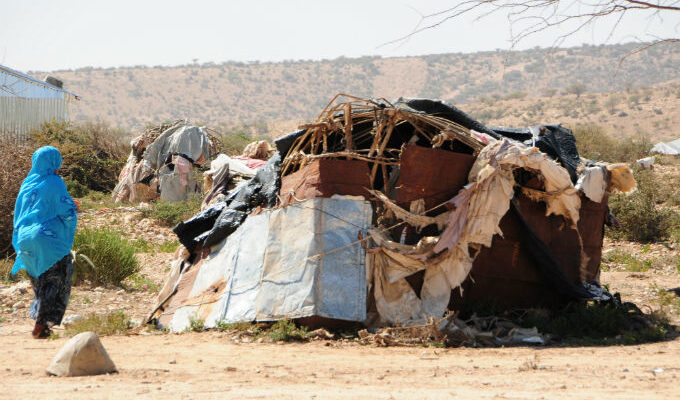El Niño 2015-2016, CERF saved lives in Somalia: Maternal health care and emergency nutrition
In 2015-2016, the El Niño event was one of the strongest since 1950, affecting over 60 million people. Its effects – drought, floods, harsh winters and poor food security – lasted for two years. The Central Emergency Response Fund was at the forefront of early humanitarian action. CERF allocated nearly US$120 million to 19 countries for life-saving response to drought, floods, cyclones, severe cold, and other El Niño-related disasters.
Somalia | 2015-2016 | CERF
Somalia. In Somalia, a severe El Niño-induced drought meant hundreds of thousands of people experienced water shortages and food insecurity. In Puntland state, CERF funding helped UNFPA provide essential healthcare for mothers in villages devastated by drought.
In any crisis, one in five women of childbearing age are likely to be pregnant, so reproductive healthcare is an essential emergency need.
Rukiyo Ahmed, 26, discovered she was pregnant just as drought started came to her village, Eelbuh. Her family lost all their animals. The drought became so bad that Rukiyo and her family had to abandon their home and went to seek refuge with extended family members living in Dangoroyo town, 35 kilometres away.
“I was so worried that I would have a miscarriage due to the effects of the drought,” said Rukiyo, adding, “We had so little to eat. I became very weak and could barely walk.” She said she was desperate for a baby and had suffered two miscarriages before.
With CERF support, UNFPA and partners provided emergency maternal health care for Rukiyo and other affected women. “We aimed to make available emergency reproductive, maternal and new-born health services for 2,300 pregnant women in all the drought-affected target areas,” explained Samia Hassan, UNFPA humanitarian lead in Somalia. “We also worked on making emergency referral services available for about 400 complicated pregnancies in the target areas.”
Rukiyo went to one such facility in Dangoroyo for advice and specialist care given her past history of miscarriage. She delivered a healthy baby through an emergency caesarean section.
“I now visit the health centre for postnatal services, and I have had birth spacing support to avoid early pregnancy. I have been advised to deliver in hospital when I get pregnant again,” said Rukiyo.
CERF funds helped IOM deliver emergency primary health care in Puntland and Somaliland.
In Lafta-Faraweyne village, Nimco’s two-year old son had been suffering from diarrhoea for two days, when she brought him to a mobile clinic supported by the International Organization for Migration.
She was very worried. “An outbreak of diarrhoea in our village affected many children and one of them died from it. Last night, I didn’t sleep at all as my child had non-stop diarrhoea and vomiting. I was worried that he will die,” she explained to the clinic staff.
Nimco and her son saw the doctor, who provided intravenous fluid when he noticed the child’s severe dehydration. After two hours of treatment her son started showing some energy. Nimco smiled as she explained: “My child is able to speak to me for the first time in the last eight hours, which means he is getting better.” Nimco also received emergency therapeutic food to take home with her as well as advice on follow-up care.
